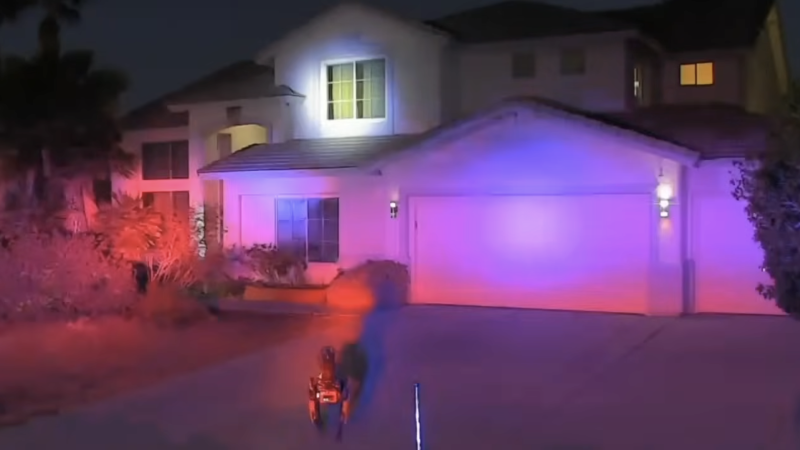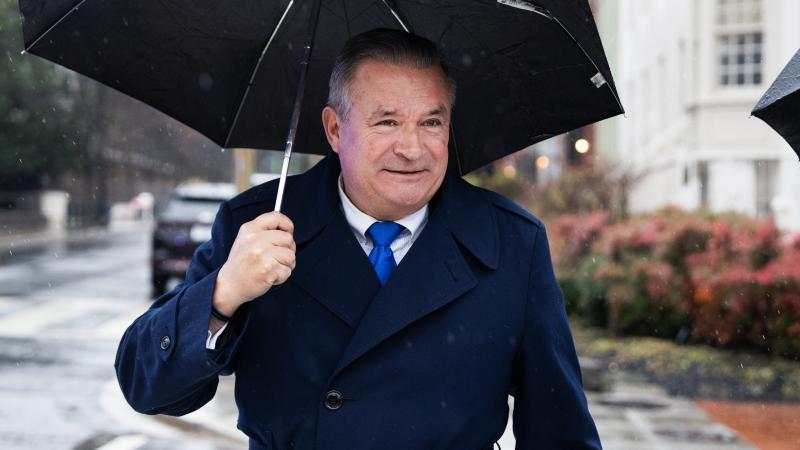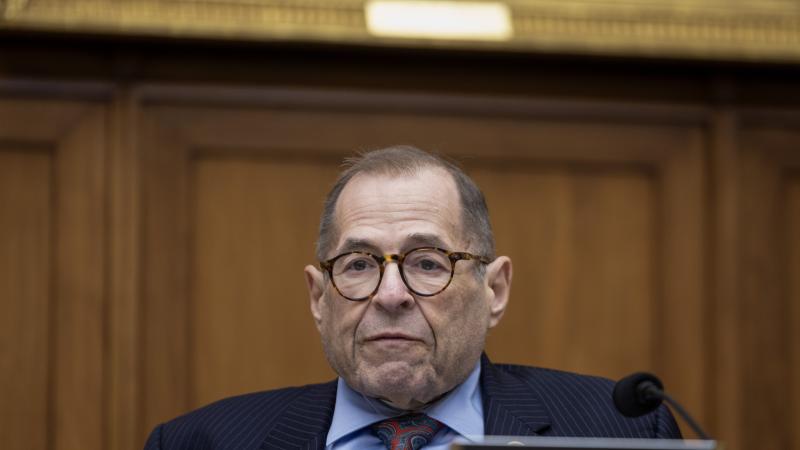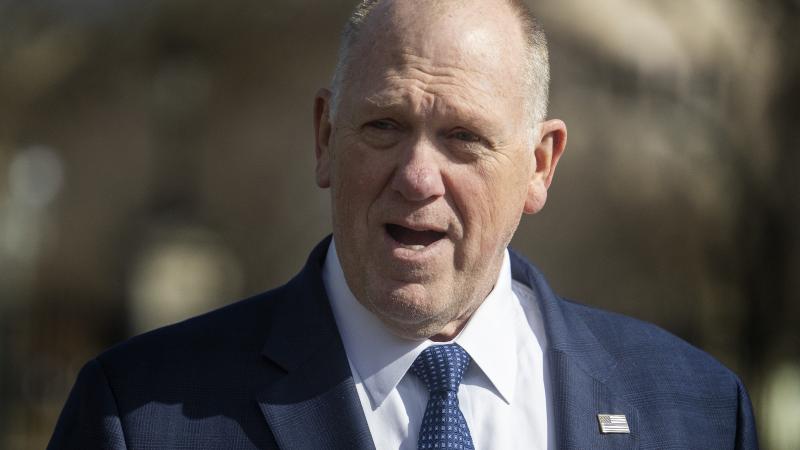Education groups target wokeness in schools through teacher licensing reform legislation
"Radical activists use education schools and licensure requirements as their central means to gain power over America's classrooms," National Association of Scholars says.
The hot button issues in K-12 public schools, from curricula informed by critical race theory and gender ideology to diversity, equity and inclusion training, have partial roots in the education schools that train America's teachers and administrators, including college bureaucrats.
The politicization of these schools is the target of model legislation to reform the licensure rules for educators offered this week by national and state education groups from Washington to Florida.
The advocacy effort dates back to at least 2005, when the Foundation for Individual Rights and Expression challenged the "commitment to social justice" graduation requirement by education schools, including Columbia's prestigious Teachers College.
Thirteen years later, Lewis and Clark College English professor Lyell Asher blamed education schools for "train[ing] an army of bureaucrats who are pushing the academy toward ideological fundamentalism" in a Chronicle of Higher Education essay.
He cited law students' repeated disruptions of a lecture by contrarian feminist Christina Hoff Sommers at the Portland liberal arts school. The protesters' refrain that "there is no debate here" is the "predictable fruit of a 'curriculum' in which liturgy is passed off as literacy, and 'social justice' signals the end of a discussion rather than the start of one," Asher wrote.
Training teachers and administrators to seek out their students' gender identities may also play a role in the explosion of children adopting identities at odds with their sex.
Maryland's largest public school system, which borders D.C., saw a 582% increase in those identifying as nonbinary over two years, KUTV reported. Parents are only allowed to help their children with Montgomery County's annual intake form, which asks students for their "identified" name and gender and preferred pronouns, if the children say the parents are "aware and supportive" of their gender identity.
"Radical activists use education schools and licensure requirements as their central means to gain power over America's classrooms," National Association of Scholars Director of Research David Randall said in debuting the Model Education Licensure Code, which is split into three bills.
The Nondiscrimination Act would prohibit the State Board of Education from training, requiring or rewarding educators to practice or affirm a belief in the "systemic nature of racism ... multiplicity or fluidity of gender identities ... any ideology or pedagogy that classifies individuals within identity groups" or divides them into "oppressed and oppressors."
It would also ban "service-learning" or pedagogy that "involves social or public policy advocacy" — requirements at the heart of a 15-year lawsuit against a Rhode Island public college whose officials may yet face individual liability for their actions.
The Review Act requires existing and forthcoming requirements to be submitted to legislatures and governors for "review and possible veto." The Certificate Act would simplify the educational licensure "pathway" by stripping requirements other than a minimum number of undergraduate courses and standardized test, both "focused on subject matter content."
The state partners are the California Policy Center and Californians for Equal Rights Foundation; Arizona's Goldwater Institute; North Carolina's Martin Center for Academic Renewal and John Locke Foundation; the Oklahoma Council of Public Affairs; Florida's Palm Beach Freedom Institute; and the Washington Policy Center.
The press release says "radicalized education schools propagandize teachers and screen out would-be teachers who refuse to acquiesce to the schools' political demands."
Terry Stoops, director of the John Locke Foundation's Center for Effective Education, said the model bills would enable "a new generation of liberty-minded teachers to enter the classroom."
The proposal mentions opposing movements in some states, though "teacher training and licensure already was so severe as to warrant reform legislation," Randall said.
In 2021, Illinois adopted "culturally responsive teaching and leading standards" whose draft language required educators to "embrace and encourage progressive viewpoints and perspectives." The American Council of Trustees and Alumni commissioned a survey of Illinoisans that found the "progressive" language was not even favored by Democrats.
While that language was removed from the final version, the standards still require teachers to promote "counternarratives to dominant culture" and "implement and integrate the wide spectrum and fluidity of identities in the curriculum."
A year later, Minnesota referenced the Illinois standards in proposing a "cultural competency" standard that would include "racial consciousness and reflection" on intersectionality, white supremacy and how "race and racism are embedded in our institutions and everyday life."
The proposal is now a flashpoint in the governor's race, the Star Tribune reported last month. The Twin Cities chapter of the Foundation Against Intolerance and Racism, cofounded by black intellectuals John McWhorter and Glenn Loury, testified that it would teach students to "reflexively conform to views attributed to that student's groups or cultures" and worsen the teacher shortage.
NAS doesn't have bill sponsors lined up yet but expects that "policymakers in different states will tailor these to fit their own laws and education systems," Randall said.
The Washington Policy Center will recommend the model legislation to its state Legislature for its next session Jan. 9, Education Director Liv Finne told Just the News, citing likely interest from Washington state Rep. Jim Walsh, the House Education Committee's ranking Republican. Walsh didn't respond to queries.
Finne said her group is worried that Washington education schools "are now fully on board with teaching the ill-defined topic of social justice," while neglecting "deep instruction in phonics" for learning how to read and starting math at a young age, which is "key to grasping abstract concepts in math in the higher grades."
The most recent state report card shows only 51% of students met English standards and only 38% met math standards. Washington education law is so backward that Microsoft founder Bill Gates couldn't teach coding without getting credits from an education school, Finne said.
The Facts Inside Our Reporter's Notebook
Videos
Links
- challenged the "commitment to social justice" graduation requirement
- Chronicle of Higher Education essay
- chronic disruptions of a lecture by contrarian feminist Christina Hoff Sommers
- KUTV reported
- Model Education Licensure Code
- Nondiscrimination Act
- 15-year lawsuit against a Rhode Island public college
- individual liability for their actions
- Review Act
- Certificate Act
- "culturally responsive teaching and leading standards"
- "embrace and encourage progressive viewpoints and perspectives
- commissioned a survey of Illinoisans
- require teachers to promote "counternarratives to dominant culture"
- Minnesota referenced the Illinois standards
- "racial consciousness and reflection"
- Star Tribune reported
- state report card
















